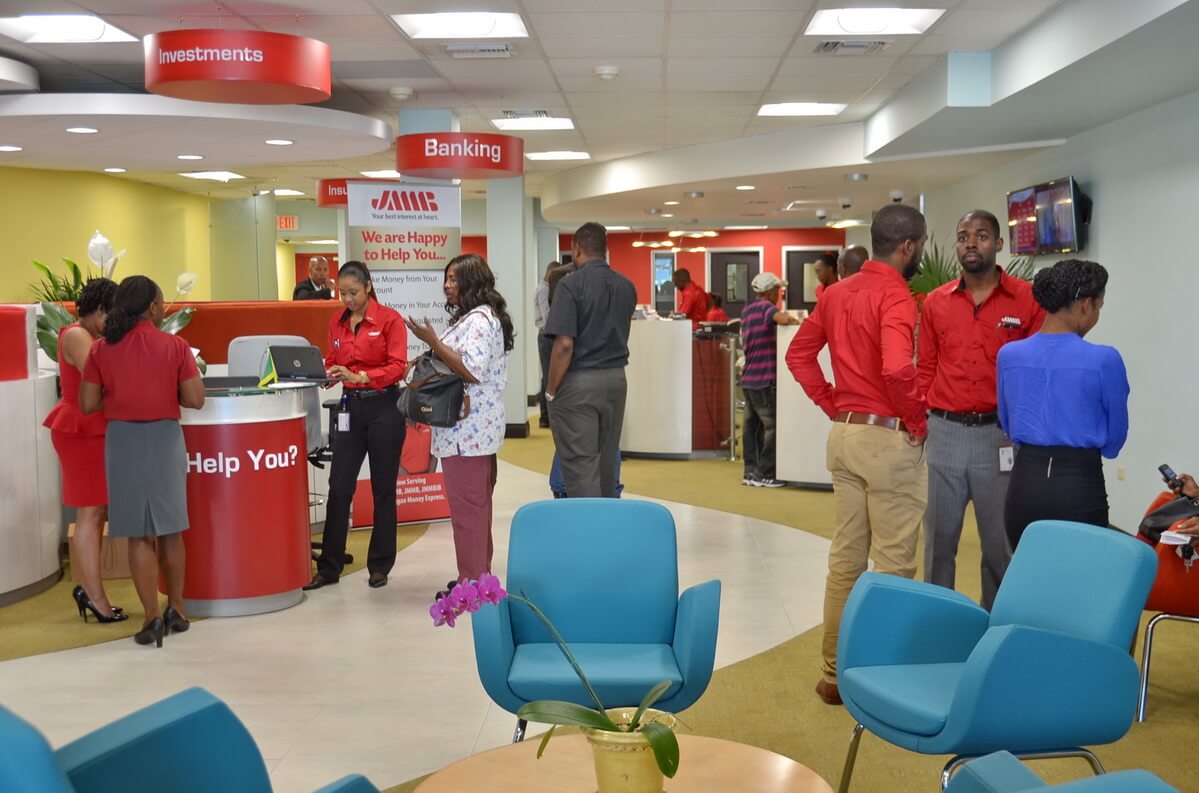JMMB Group Delivers Solid Performance Despite COVID-19 Pandemic

Regional financial conglomerate, JMMB Group, for its nine-month period ended, December 31, 2020, recorded net profits of J$4.02 billion, which is in line with earnings for the corresponding period in the prior year, where the Group reported net profit of J$4.0 billion.
In explaining further, Patrick Ellis, JMMB Group, chief financial officer outlined, “The Group’s performance remains credible over the period, although its profitability was moderated by the economic slowdown and uncertainty in the market, as a result of the COVID-19 pandemic.”
 He added, “In response to the current economic environment the company has continued to execute on its customized COVID strategy, which is focused on client protection, business continuity, acute management of capital, liquidity and expenses; even as it prioritizes efficiency-related projects and accelerates its digital strategy.”
He added, “In response to the current economic environment the company has continued to execute on its customized COVID strategy, which is focused on client protection, business continuity, acute management of capital, liquidity and expenses; even as it prioritizes efficiency-related projects and accelerates its digital strategy.”
Ellis in reiterating the company’s solid financial foundation highlighted that the Group’s core earnings remain positive, as demonstrated by the 8% increase in its net interest income, year-over-year, totaling J$7.58 billion. This was largely driven by the growth in the Group’s investment and loan portfolios of 30% and 7% respectively.
During the reporting period, the Group however posted net operating revenue of J$16.54 billion, which represents a 5% decline, when compared to the prior period. The entity’s earnings in the form of fees and commission income saw a marginal decline of 3% in its, which totaled J$2.36 billion, as a result of lower business activity, which was partially offset by significant growth in managed funds and collective investment schemes across the Group. Additionally, gains on securities traded and foreign exchange earnings also showed a corresponding 13% and 31% dip, totaling J$4.94 billion and J$1.57 billion respectively. This decline in earnings from these revenue streams were largely attributed to the downturn seen in trading activities as the market reacted to the uncertainties brought on by the COVID-19 pandemic and slowdown in economic activities, regionally and globally.
The company’s operational expenses also decreased, in line with lower business activity coupled by cost containment strategies implemented by the Group and increased focus on extracting operational efficiencies through the standardization of processes and IT capabilities, in addition to the prioritization of its efficiency-related projects. As a result, there was a J$547.5 million reduction in expenses, to J$10.66 billion, which is a 5% decline, year-over-year.
The Group has not recorded any share of profits from its associated company, Sagicor Financial Company Limited (SFC), for the quarter; as SFC has opted to publish its audited results for the year ended December 31, 2020, utilising 90-day provision under the Toronto Stock Exchange (TSX). Therefore the results for the quarter was not available, as such the Group will reflect any earnings from SFC in its year-end results for March 31, 2021.
JMMB Group Outlook Remains Positive
.png) JMMB Group CEO, Keith Duncan, in commending the team for its credible performance, thus far, shared that the company remains nimble in responding to the challenging economic environment and continues to execute on its sustained growth strategy that is centred on diversifying its business model; expanding its current business lines in the markets in which it now operates, and taking advantage of strategic opportunities, including acquisitions in the Caribbean and Central America.
JMMB Group CEO, Keith Duncan, in commending the team for its credible performance, thus far, shared that the company remains nimble in responding to the challenging economic environment and continues to execute on its sustained growth strategy that is centred on diversifying its business model; expanding its current business lines in the markets in which it now operates, and taking advantage of strategic opportunities, including acquisitions in the Caribbean and Central America.
In giving more details on the Group’s strategic direction, Group CEO, Duncan, outlined, “We are looking to spur our organic growth by deepening our presence in our current markets, with greater emphasis being placed on building out our offerings to small and medium-sized enterprises (SMEs) and extending our banking suite of offerings.” As evidence of the Group’s commitment to better serving SMEs, JMMB Bank (Jamaica) Limited recently announced that it signed an agreement with IDB Invest, a member of the IDB Group, which will allow the bank to access US$35 million over a five-year tenor to facilitate increased financing to small and medium-sized enterprises (SMEs).
He further added, “We will continue to accelerate the build-out the digital transformation process in a bid to continue to make the client financial partnership more seamless and accessible; as part of this thrust we look forward to begin the roll-out of intelligent automated teller machines (ATMs), by the end of the financial year.”
In also expressing optimism, Keith Duncan outlined the Group remains focused on pursuing other growth opportunities during the pandemic, as well as embedding operational efficiency, as key imperatives to drive profitability over this financial year and beyond. In support of its continued expansion, both locally and regionally, the JMMB Group is seeking to raise J$6 billion through its preference share offer, which opens February 16.
JMMB Group Builds on Solid Financial Foundation
At the end of the reporting period, the JMMB Group’s asset base totaled J$489.24 billion, up J$89.02 billion or 22%, relative to the start of the financial year. This increase is attributable to a larger loan and investment portfolio, as well as a larger liquidity buffer. The credit quality of the loan portfolio continued to be comparable to international standards and the company implemented enhanced monitoring to mitigate against possible deterioration in credit quality. Growth in the asset base over the nine-month period was funded by increases in client deposits and repos, which increased by J$16.80 billion or 16%, totaling J$120.98 billion and repos by J$45.89 billion or 26%, which totaled J$225.48 billion.
The company has also sought to further strengthen its capital base and further manage its expenses, as such, the Group continues to focus on extracting operational efficiency from all entities. It also remains adequately capitalized, exceeding regulatory capital requirements, with an uptick in shareholders’ equity by 48%, to J$61.09 billion. This was largely on account of the profitability for the quarter and rebound in emerging market bond prices, which resulted in positive movement in the investment revaluation reserve.
